ANTAKYA (AP) – A year after a powerful earthquake in southern Turkiye reduced hundreds of thousands of homes to rubble, Fatma Kirici lives in a tent with her husband and two grown children, afraid to return to the multi-storey house they fled that somehow still stands.
“Our house is at the edge of a precipice,” said Kirici, 50, whose 20-year-old daughter and son-in-law died in the quake when their house collapsed. “I don’t want to put my other kids at risk.”
As Turkiye marks the first anniversary of the 7.8-magnitude quake that struck last February 6, people living in the hardest-hit regions are grieving deceased family and friends, struggling to rebuild livelihoods and grasping for closure in cases where loved ones are still missing. Unemployment is rampant and roughly a quarter of families in the affected region rely on charity, according to the Red Cross.
A massive rebuilding effort is underway in areas devastated by the quake, which killed over 50,000 in Turkiye and at least 6,000 in northern Syria. The Turkish government is rushing to build more than 300,000 homes for displaced families, most of whom are living in temporary homes made from shipping containers.
Because Kirici’s house was only “slightly damaged”, according to the government, the family does not qualify for either the subsidised housing under construction or a container home.
So they are spending another winter exposed to the elements: Cold rain regularly soaks the ground under their tent and the mattresses where they sleep, and every so often an aftershock rattles southern Turkiye and the family’s nerves.
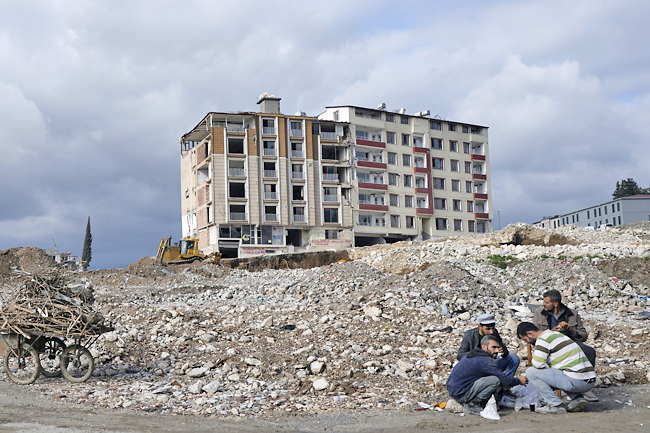
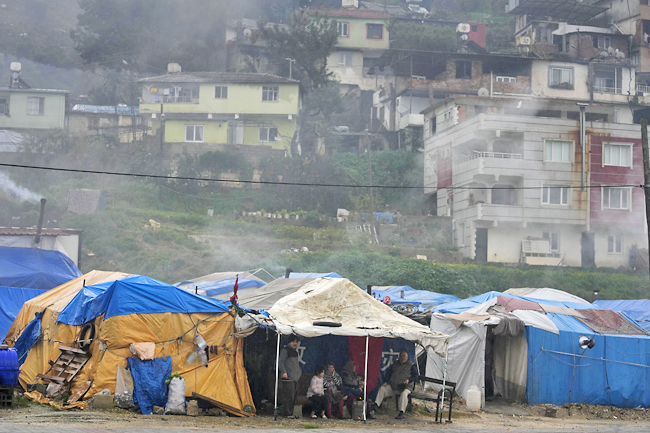
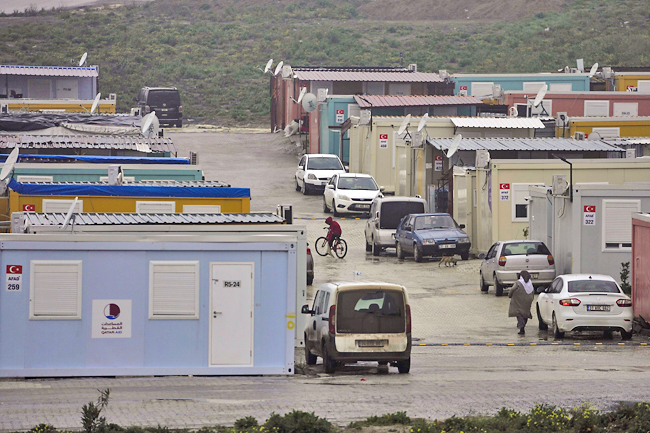
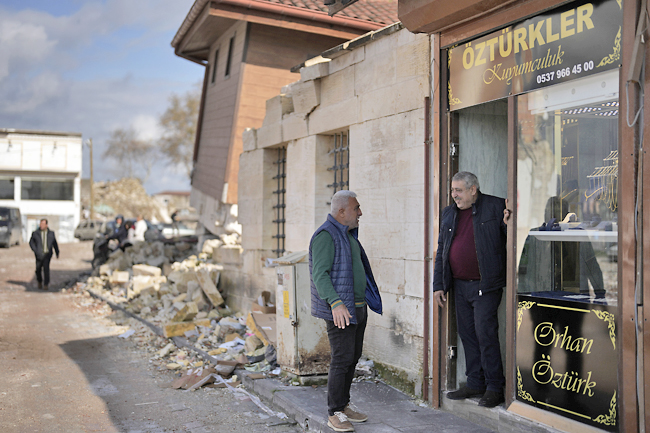
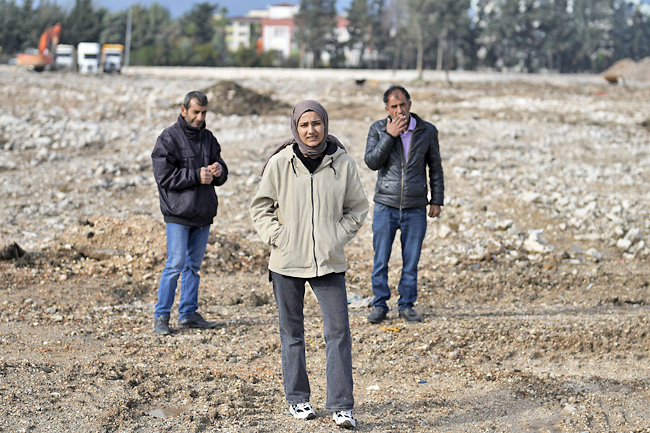
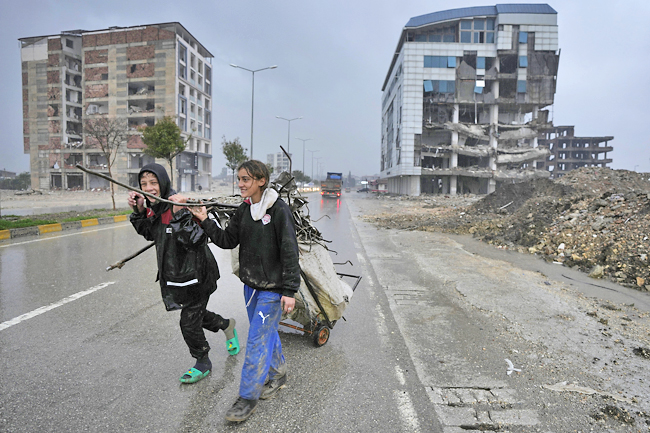
“As a family, our psychology has completely deteriorated,” said Kirici, whose tent is pitched by the side of a road, along with a half dozen other families struggling with similar circumstances. Kirici is not sure how long the family will live in a tent, but she remains hopeful that the government will come to their aid.
To compensate for the death of Kirici’s daughter, the government gave her USD3,307, which her son used to purchase a container home for his wife and three young children.
Turkish President Recep Tayyip Erdogan has pledged to deliver some 319,000 new homes by next month, ahead of key local elections in March.
Government officials said the new homes being built are designed to withstand strong earthquakes.
“The sites are selected with great sensitivity and meticulousness,” said civil engineer Osman Alan at the government agency leading the construction of new homes in Gulderen, a town 15 kilometres north of Antakya. He said homes built by his agency before last year’s quake are still standing, without significant damage.
“All of the citizens were able to vacate the homes without even a nosebleed,” he said.
Some who survived the quake and have a place to live nevertheless remain traumatised by uncertainty.
Sevda Kose, 22, is among the estimated dozens of people still searching for a trace of family members who never emerged from the rubble. Her brother, sister-in-law and baby nephew lived on the seventh floor of an eight-storey apartment building that was engulfed in flames as it came crashing down.
Most of the building’s 100 residents died, while 25 – including her relatives – are listed as missing.
Kose’s family has searched morgues, cemeteries, and hospitals in several provinces. They submitted DNA samples, but none have yielded a match with unidentified victims.
She hasn’t lost hope of finding them alive. “We are thinking about every possibility.”
Roads leading to Antakya, the city once known as Antioch, are lined with rows and rows of container homes – just one of the many so-called container cities housing an estimated 430,000 people across 11 hard-hit provinces, according to the Red Cross.
The city centre is Antakya is almost deserted. An old Parliament building, an Orthodox church and churches and mosques await reconstruction.
Many of the collapsed or seriously damaged buildings have been torn down, although some abandoned buildings with cracked or collapsed walls remain. Very few buildings stand unscathed.
A few businesses have reopened but they are struggling.
Orhan Ozturk re-opened his small gold shop two weeks ago after the rubble out front was cleared, yet he hasn’t had many customers.
“We have thought about (leaving) but where would we go? This is our homeland,” he said.
The Red Cross said hundreds of thousands of people in the quake zone who lost their source of income are still relying on support. “The road to rebuilding and recovery is long, requiring sustained international support,” said Jesse Thomson, who leads the relief agency in Turkiye.
Cevdet Donmez, 30, was lucky enough to get a container home from the government, but his job as a window installer is gone. To support his mother, wife and three children, Donmez got a job removing furniture from damaged buildings earmarked for demolition.
“We are in a bad situation,” he said. “We lost everything suddenly. How will we be able to recover? How can we provide a good future for the children? I don’t know.”
Emre Ceylan lost nine family members in the quake, and his barbershop was destroyed. He recently purchased a container and transformed it into a barbershop, which he’s eager to open as soon as he can get electricity installed.
“We didn’t realise how good our lives were,” he said, “until the earthquake took everything away from us.”




